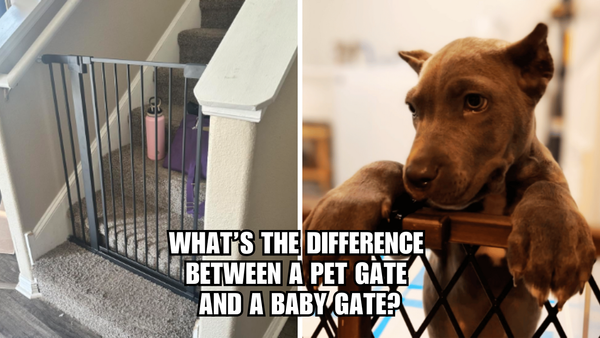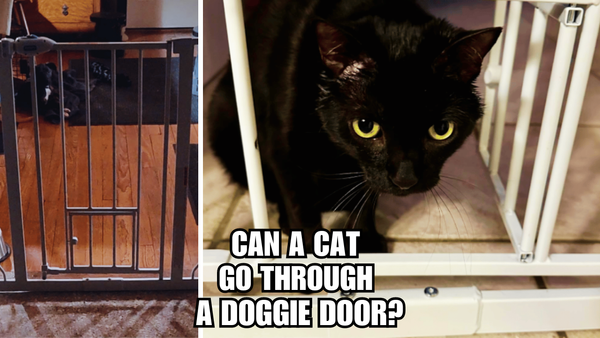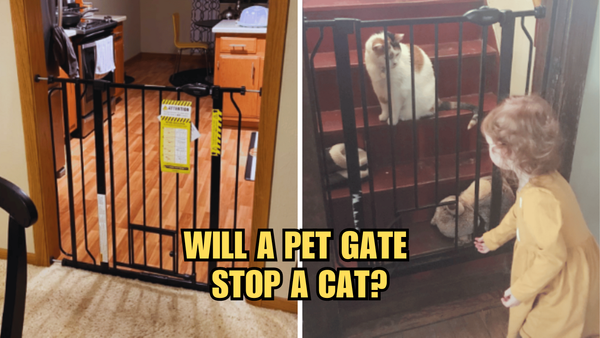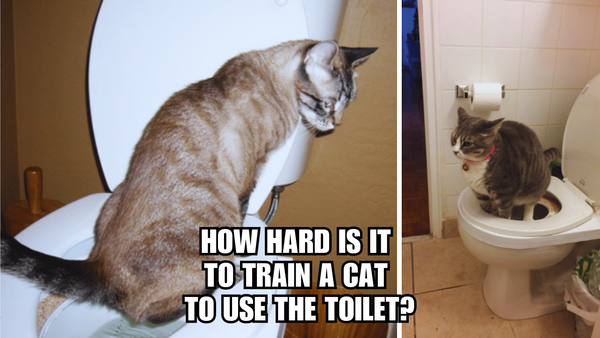Cat owners know the struggle of maintaining a fresh-smelling home, especially when it comes to managing the odors from their furry friend's litter box. The question on many minds is: do air purifiers help with cat litter smell? This comprehensive guide will delve into the effectiveness of air purifiers in combating litter box odors and maintaining a pleasant home environment.
Key Takeaways:
- Air purifiers with activated carbon filters are effective in eliminating pet odors, including those from cat litter boxes.
- Regular maintenance of the litter box and the air purifier, including filter changes, is crucial for optimal odor control.
- Choosing the right type of air purifier and considering room size are important factors for effectively reducing cat litter smell.

Understanding Cat Litter Odors
Cat litter boxes are a breeding ground for unpleasant smells. The combination of cat urine, feces, and litter dust can produce a potent mix of volatile organic compounds (VOCs) and ammonia, which contribute to the persistent odors that cat owners often battle. These odors are not just a nuisance but can also affect the overall air quality in your home.
The Science Behind Litter Box Smells
The primary culprits behind litter box odors are ammonia and VOCs released from cat waste. Ammonia, a byproduct of urine, can be particularly pungent and irritating to the respiratory system. VOCs, on the other hand, are organic chemicals that have a high vapor pressure at room temperature, leading to their presence in the air we breathe.
How Air Purifiers Work
Air purifiers function by pulling in air from the surrounding environment and passing it through a series of filters. These filters trap and remove airborne particles, including pet dander, litter dust, and small particles responsible for carrying odors. The clean air is then recirculated back into the room, resulting in improved air quality.
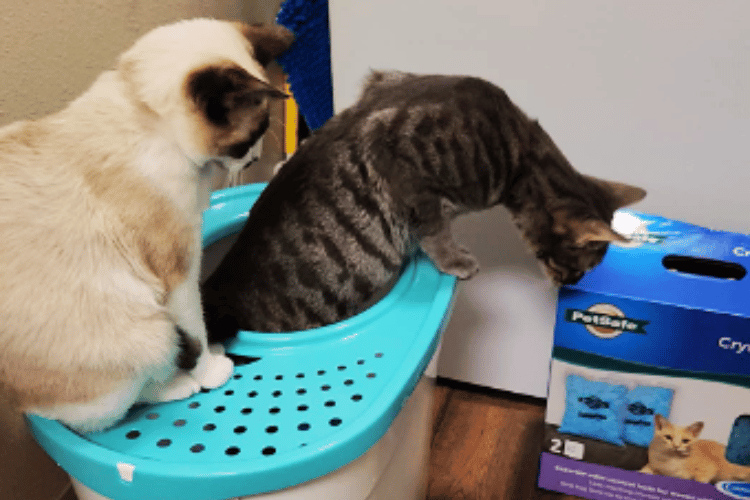
The Role of HEPA Filters
High Efficiency Particulate Air (HEPA) filters are a key component in many air purifiers. True HEPA filters are capable of capturing 99.97% of particles as small as 0.3 microns, which includes most allergens, pet dander, and even some odor-causing particles. However, while HEPA filters are excellent for removing particulates, they are not inherently designed to eliminate odors.
Activated Carbon Filters: The Odor Eliminators
Activated carbon filters are the secret weapon in the fight against cat litter odors. These filters are made from carbon that's been treated to increase its absorbency. When air passes through an activated carbon filter, the carbon absorbs odors and VOCs, effectively removing them from the air.
The Power of Activated Carbon
The porous nature of activated carbon allows it to trap odor molecules as well as chemicals, making it an effective filter for eliminating pet odors. These filters are especially beneficial for cat owners, as they can absorb the strong smells associated with cat urine and feces.
The Best Air Purifier for Cat Litter Smell
When searching for the best air purifier to combat cat litter smell, look for models that combine a true HEPA filter with an activated carbon filter. This combination ensures that both particulate matter and odors are addressed. Additionally, features like a filter change indicator can help maintain the purifier's effectiveness.
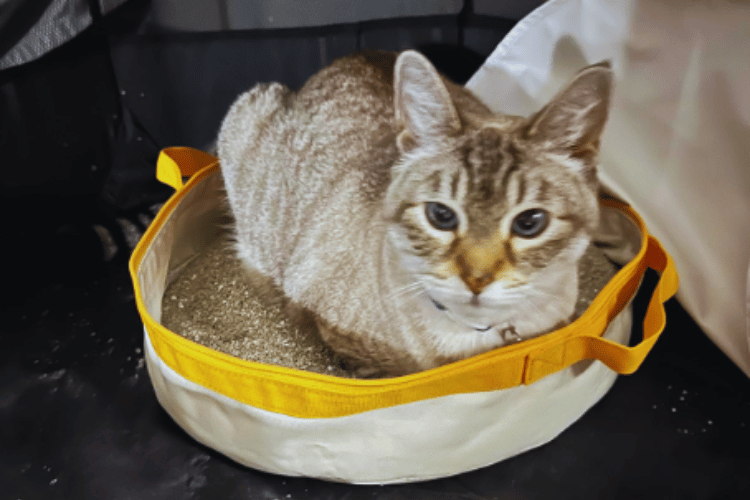
Key Features to Consider
Other features to consider include the clean air delivery rate (CADR), which indicates how quickly the air purifier works, and the size of the room it's designed for. An air purifier with a high CADR will be more effective in larger spaces, ensuring that the air is filtered efficiently.
Placement of Air Purifiers
To maximize the effectiveness of an air purifier in reducing litter box odors, it should be placed in close proximity to the litter tray. This allows the purifier to capture odors at the source before they have a chance to spread throughout the room.
Room Size Matters
It's also important to choose an air purifier that's appropriate for the size of the room where the litter box is located. A purifier that's too small for the space won't be as effective in removing contaminants and odors.
The Benefits of a Washable Pre-Filter
When it comes to managing cat odors, a washable pre-filter can be a game-changer for any cat owner. These pre-filters serve as the first line of defense, capturing larger particles like pet hair and cat litter dust before they reach the main HEPA air filter. This not only helps to maintain a fresher environment but also extends the life of the primary filter. By trapping these larger particles, the pre-filter prevents the HEPA filter from becoming clogged too quickly, ensuring it can perform at its best to eliminate smaller allergens and kitty litter particles that contribute to the overall smell.
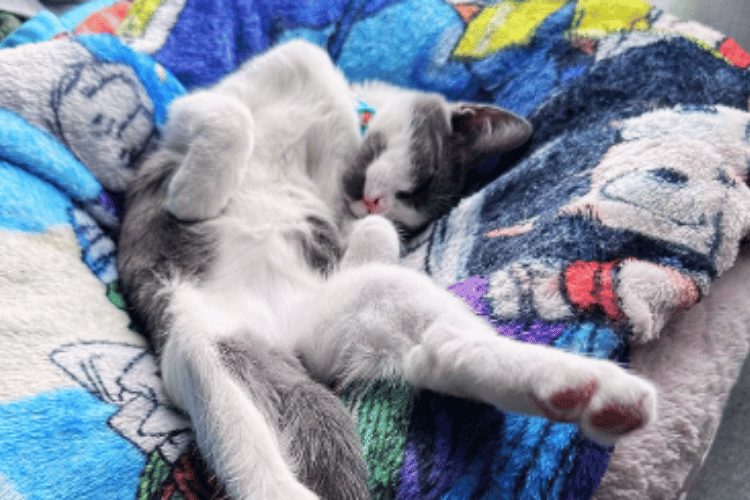
Moreover, the convenience of a washable pre-filter cannot be overstated. Cat owners know all too well how quickly pet hair and cat hair can accumulate. A washable pre-filter is easily cleaned with water, allowing for repeated use without the need for frequent replacements. This eco-friendly option not only saves money in the long run but also ensures that the air purifier is always ready to tackle fresh litter smells and other odors that come with having a cat's litter box indoors. Regularly cleaning the pre-filter ensures that the air purifier operates on the highest setting, providing a clean and odor-free home.
The Efficacy of UV-C Light in Neutralizing Cat Odor
When it comes to battling the persistent scent of a cat's litter box, UV-C light emerges as a formidable ally. This technology, which harnesses a specific spectrum of ultraviolet light, has been proven to destroy the DNA of odor-causing bacteria and viruses. By integrating UV-C light into an air purifier, pet owners can enjoy an extra layer of protection against the microbial culprits behind unpleasant smells. Not only does it help in keeping the air fresh, but it also contributes to a healthier environment by reducing the potential spread of germs from the litter box.
Moreover, the use of UV-C light in air purifiers is particularly beneficial for households with sensitive individuals, such as those with allergies or respiratory issues. By effectively neutralizing airborne pathogens, these devices can alleviate concerns about the air quality being compromised by cat odor. It's a high-tech solution that offers peace of mind, ensuring that the air in your home remains clean and less likely to cause discomfort or health problems.
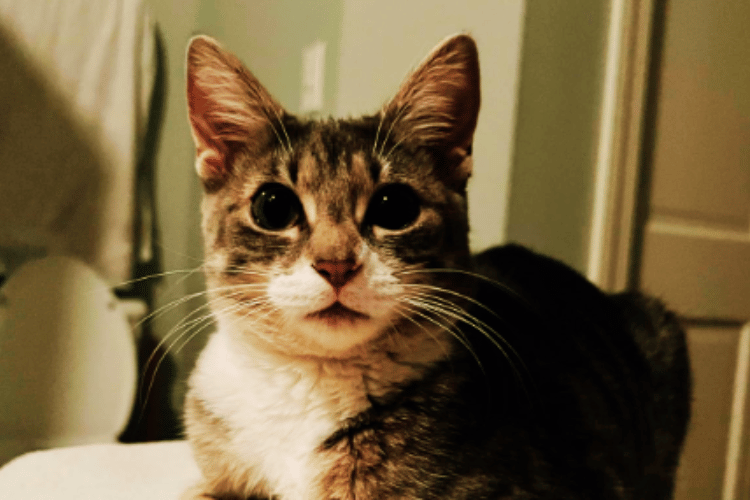
The Integration of UV-C Light in Air Purifiers
When it comes to managing the odors emanating from your cat's litter box, UV-C light technology in air purifiers can be a game-changer. This advanced feature uses ultraviolet light to kill bacteria and viruses, which are often responsible for the unpleasant smells. By incorporating UV-C light, air purifiers not only tackle the larger particles but also sanitize the air at a microscopic level, ensuring a fresher environment for both you and your feline friends.
The use of UV-C light in air purifiers is particularly beneficial for cat owners who are sensitive to odors or have allergies. It's an added layer of protection that works silently in the background. As the air circulates through the purifier, the UV-C light targets the microorganisms that traditional filters might miss, reducing the likelihood of odor build-up and contributing to a healthier living space.
The Convenience of a Washable Pre-Filter
A washable pre-filter is an invaluable addition to any air purifier in a home with pets. It serves as the first line of defense against pet hair, dander, and larger particles before they reach the main filters. The beauty of a washable pre-filter lies in its reusability; it can be easily cleaned and replaced, saving cat owners from the hassle and expense of frequently buying new filters. This not only makes maintenance easier but also ensures that the air purifier operates at peak efficiency.
Moreover, a washable pre-filter extends the life of the subsequent filters, like the HEPA and activated carbon layers, by preventing them from clogging up too quickly. For those dealing with the persistent challenge of cat litter box odors, this means that the air purifier can continue to effectively eliminate smells without constant filter changes. The convenience of a washable pre-filter is a small but significant feature that can make a big difference in the day-to-day management of pet odors.
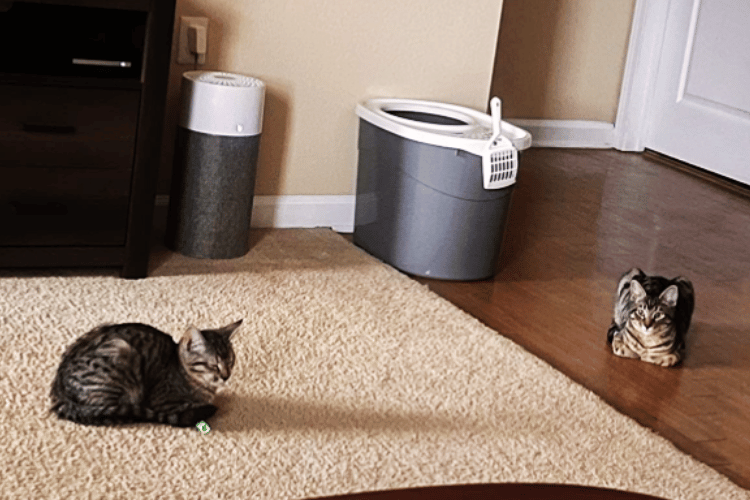
The Advantages of a Washable Pre-Filter for Cat Owners
A washable pre-filter is a boon for cat owners who are familiar with the relentless battle against fur and dander. Positioned as the first line of defense in an air purifier, a washable pre-filter captures large particles, including the fine hairs and dust from a cat's litter box, before they reach the inner workings of the device. This not only extends the life of the subsequent filters but also makes maintenance a breeze. Since it's washable, pet owners can simply clean it regularly, ensuring that the air purifier operates at peak efficiency without the need for frequent filter replacements.
In addition to its practicality, a washable pre-filter is an eco-friendly option. It reduces waste by minimizing the need for disposable filters, and it's a cost-effective solution in the long run. Cat owners can appreciate the dual benefits of this feature: it keeps the air purifier working effectively against cat odor while also being kind to the wallet and the planet. It's a simple yet impactful way to enhance the air quality in a home with pets.
UV-C Light: An Extra Layer of Odor Protection
In the quest to keep a home smelling fresh despite the presence of a cat litter box, UV-C light technology offers an additional layer of protection against odors. This advanced feature found in some air purifiers uses short-wavelength ultraviolet light to inactivate airborne pathogens and microorganisms like bacteria, viruses, and mold spores. For a cat owner dealing with persistent cat odors, this means that the air purifier does more than just physically filter the air; it also sanitizes it, reducing the microbial contributors to unpleasant smells.
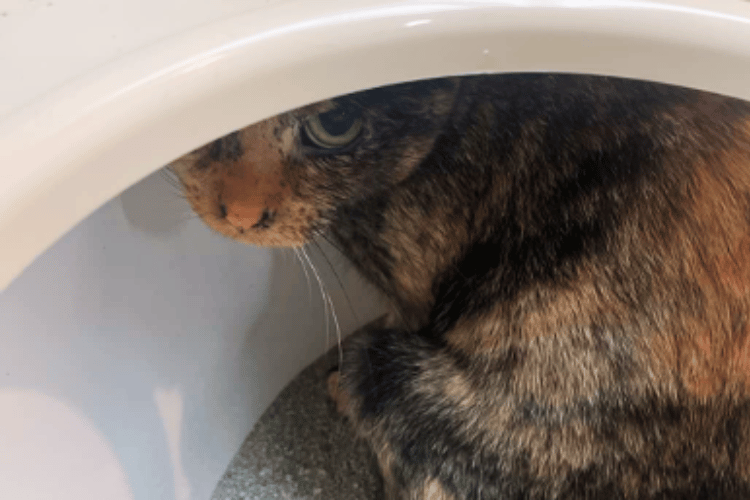
The use of UV-C light in conjunction with effective filters creates a powerful combination for tackling not only cat odors but also other household smells and potential allergens. When the air purifier is run on its highest setting, the UV-C light works continuously to purify the air, providing an extra sense of cleanliness and reassurance for pet owners. It's important to note, however, that while UV-C light is excellent for reducing microbes that can cause odors, it should be used as part of a comprehensive approach that includes regular cleaning of the kitty litter and maintenance of the air purifier itself for optimal results.
Additional Strategies for Odor Control
While air purifiers play a significant role in managing litter box smells, they should be part of a broader strategy for odor control. Frequent cleaning of the litter box and using quality litter that's designed to absorb odors can greatly reduce the presence of bad smells.
The Importance of Litter Box Maintenance
Regularly scooping the litter box, changing the litter, and giving the box a deep clean are essential steps in keeping odors at bay. Using an enzyme cleaner can also help break down the organic matter that causes persistent odors.
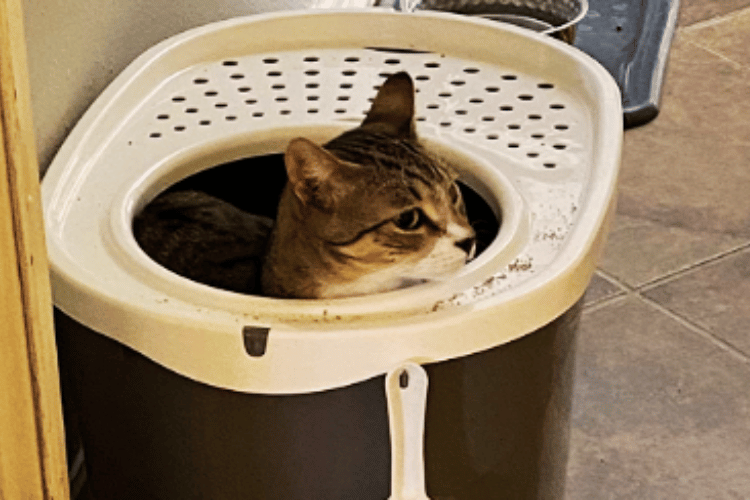
Managing Multiple Cats
For households with multiple cats, odor control can be particularly challenging. More cats mean more frequent use of the litter box and, consequently, more odors. In such cases, having more than one litter box and an air purifier with a higher capacity for odor removal is advisable.
Frequent Cleaning is Key
With multiple cats, the litter boxes should be cleaned more often to prevent the buildup of odors. Additionally, using an air purifier with a higher setting can help maintain fresh air in the home.
The Role of Baking Soda
Baking soda is a natural odor absorber and can be sprinkled on top of the litter to help neutralize smells. While not a replacement for an air purifier, it can be a helpful supplement in controlling litter odor.
DIY Odor Solutions
Some cat owners create DIY solutions by mixing baking soda into the litter or placing open boxes of baking soda near the litter tray. These methods can provide temporary relief from unpleasant smells.
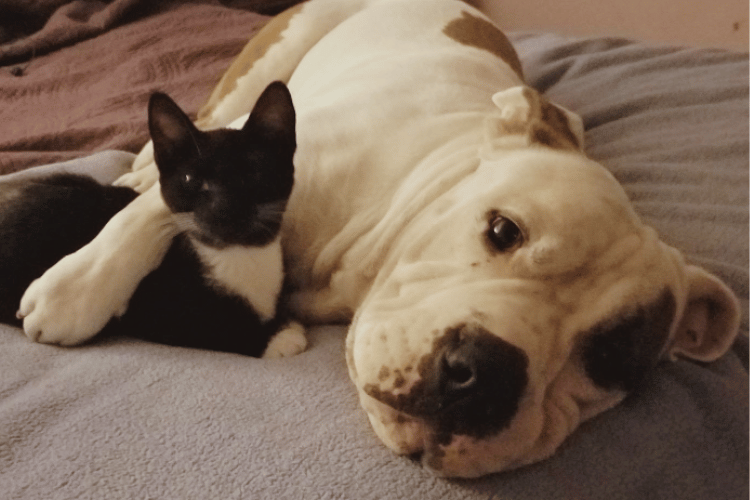
When to Change Your Air Purifier's Filter
To ensure that your air purifier continues to effectively eliminate odors, it's important to replace the filters according to the manufacturer's recommendations. A filter change indicator can be a helpful reminder to perform this maintenance task.
Maintaining Your Air Purifier
Regularly checking and replacing the washable pre-filter, if your air purifier has one, can also extend the life of the main filters and maintain the unit's efficiency in removing airborne particles and odors.
Advanced Air Purifying Technologies
Some air purifiers come equipped with additional technologies such as UV-C light or an antimicrobial agent. These can help in removing contaminants and reducing odors, but they should be used in conjunction with, rather than as a replacement for, activated carbon and HEPA filters.
Considering Additional Features
Features like sleep mode can be beneficial for running the air purifier at night without disturbing sleep, while still working to keep the air fresh and free of litter box odors.
Summary
Air purifiers can be a valuable tool for cat owners looking to reduce the smell of cat litter in their homes. By combining HEPA filters with activated carbon, these devices can effectively trap and eliminate both particulate matter and odors. Placement, room size, and additional features like filter change indicators play a crucial role in the purifier's effectiveness.
Regular litter box maintenance and the use of quality litter are also essential in controlling odors. For homes with multiple cats, more frequent cleaning and higher capacity air purifiers are recommended. While air purifiers are a significant aid in maintaining a fresh-smelling home, they should be part of a comprehensive approach to odor control.
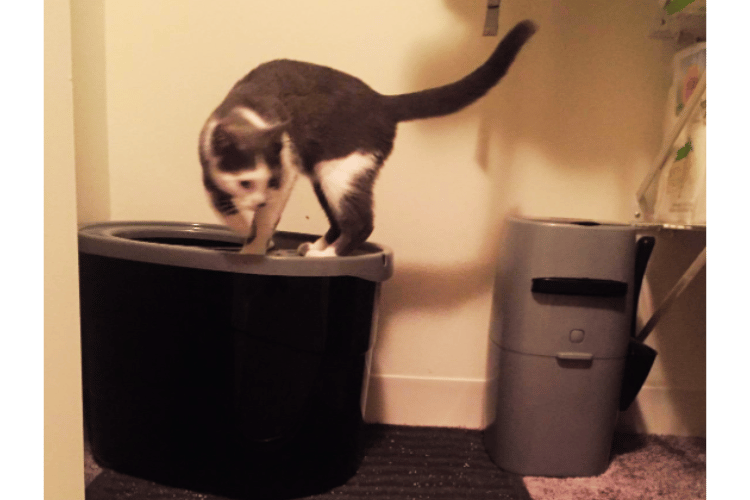
FAQ Section
Q: Can an air purifier completely eliminate cat litter smell? A: While an air purifier can significantly reduce cat litter smell, it may not completely eliminate it. The effectiveness depends on the type of air purifier, the filters used, and how well it's maintained. Regular litter box cleaning and using quality litter are also important factors.
Q: How often should I change the filters in my air purifier? A: The frequency of filter changes depends on the manufacturer's recommendations and how often the air purifier is used. Most air purifiers have a filter change indicator to alert you when it's time for a replacement.
Q: Is it safe to leave an air purifier on all the time? A: Yes, it is generally safe to leave an air purifier running continuously. Many models are designed for 24/7 operation and have features like sleep mode to reduce noise and energy consumption while still filtering the air overnight.
Thank you for visiting LegitLists we hope this helps you make a legitimate choice!



